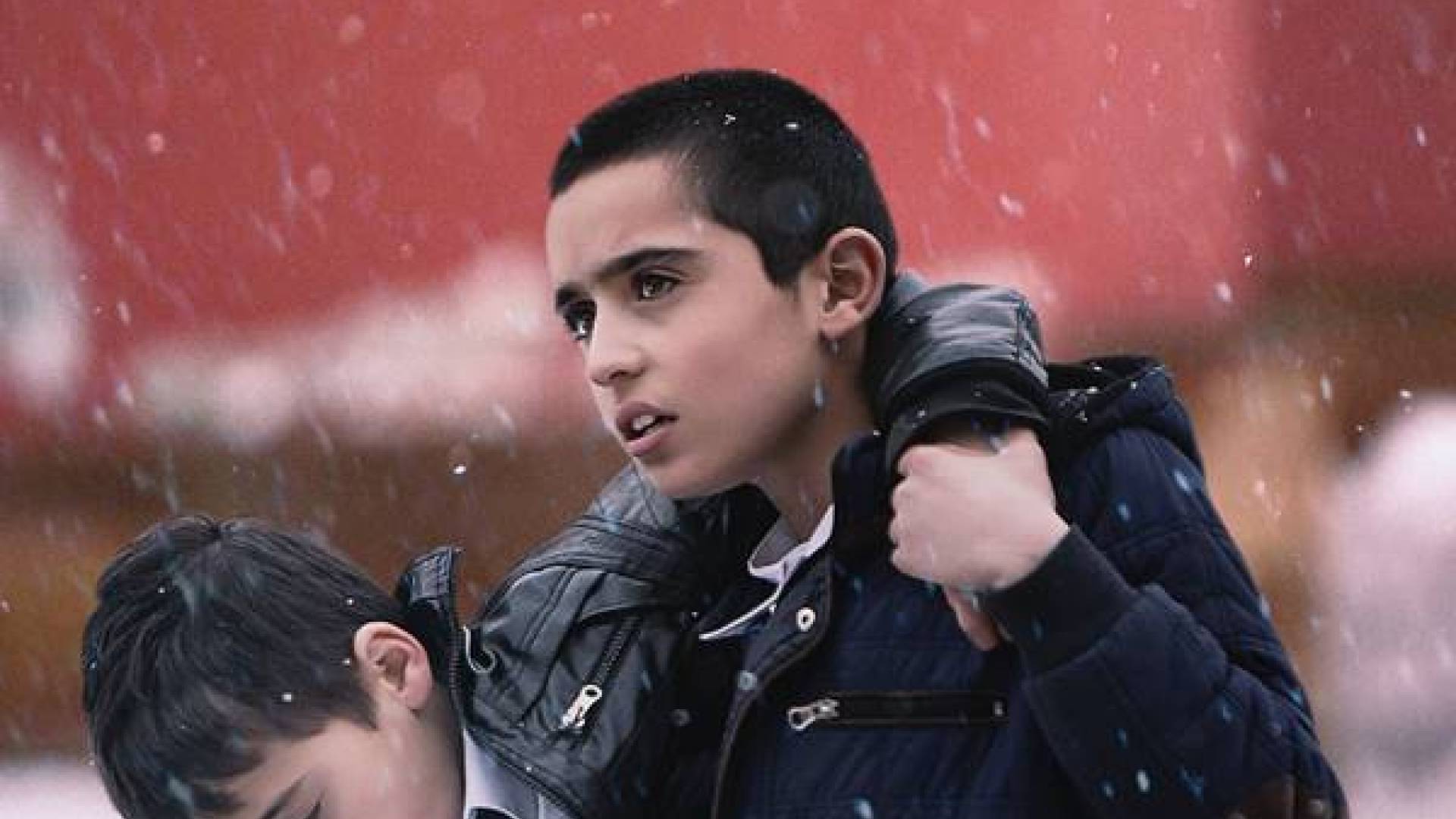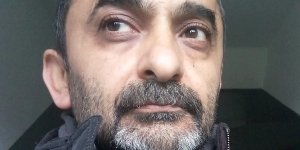OKULTRASI by Şafak Ayhan Pen
SCHOOL TRIM "I want the film to start after you leave the cinema." Jacques Tati "School Shave" is a film by Ferit Karahan, one of the most promising directors of recent times. Last year at the 71st Berlin Film Festival The film received the FIPRESCI Award and won 3 awards at the Antalya Golden Orange Film Festival, including the Best Film Award. The film was co-written by Ferit Karahan and Gülistan Acet and Ferit Karahan was in the director's chair. The cast of the film includes Samet Yıldız, Ekin Koç, Mahir İpek, Melih Selçuk and Cansu Fırıncı. In the film, in a boarding school where pressure and discipline are intense, a student tries to take his sick friend to the doctor, but the bureaucracy of the school, The film tells the story of Yusuf, who has to struggle with the indifference of the administration and difficult geographical conditions. The type of school mentioned in the film is YİBO (Regional Boarding Primary School), which is known by its abbreviation in the language. to meet the compulsory basic education needs of children living in rural areas where they are scattered, by the state is defined as a school where the needs of the students staying at the school are met. The needs of boarding/boarding students such as food, teaching materials, etc. are met by the state. were provided free of charge by the Ministry of Education. Schools that served as "Regional Primary Boarding School" before 2012, were organised under the 4+4+4 education system. system, it started to serve only at the secondary school level and its name was changed to "Regional Boarding Secondary School". This general This is a generalised description of the current education system. However, this is not the case at all. These schools, especially in Kurdish cities to try to assimilate and Turkify children of different ethnic identities and mother tongues are official educational institutions. The director of the film is someone who studied at YİBO for six years in his time, and he is familiar with the education in the name of education / education / education in Kurdish cities in the Regional Boarding Schools. He strongly exposes the inhumane practices called teaching in his film. Some racist, system-supported school administrators and teachers, who were angry and hateful for coming to the Kurdish cities, gathered from their villages and asked their parents for help. The systematic use of YİBOs, which were created by the system specifically for the assimilation of Kurdish children. The YİBOs were created by the system specifically for the assimilation of Kurdish children. Karahan, who emphasises this aspect very well, presents the film to us in a very special dimension with artistic metaphors. The subordinate-superior relations created among the students, the analogy between school and barracks, the deprivation of education in one's mother tongue, denial, co-operation, starvation fear, need to belong, demand for acceptance, poverty, punishments, racism, hatred, unhappy children, minus thirty degrees of loneliness, an icy infirmary without medication or doctors, flattery, denial and an icy bath. Children who do not speak a language other than their mother tongue are gathered together and subjected to constant verbal abuse and violence because they do not know Turkish and have not learnt it. His emphasis on this process called education, which results in beatings, is very appropriate. Kurdish children's efforts to learn Turkish The fact that this is a nightmare for every Kurdish student who unknowingly starts school is ironically portrayed in the scenes in the film. Especially the depiction of nation denial... This situation encompasses both the individual, society and geography to such an extent that it is ontologically The director, who of course experienced these processes first-hand, slaps the denial of a whole people who are ignored in one scene: "In a geography lesson, the teacher asks a student on the blackboard, "Which region is this, and which region are we in?" on the map; Upon the student's answer "Kurdish Region", the teacher replies, "There is no such thing as a Kurdish region", and pressurises Eastern Anatolia He makes them say the name of the region. The teacher completes the mission for which he was sent there with his words, but he realises that this is only an ostensible refutation, that he himself No matter what he says, he is also aware that the reality is never like that. Regional Boarding Schools in the historical process So, what is the mission and vision of these schools called YİBOs? How did they come into existence? Let us look at this for a while. YİBOs are constantly praised by the state with claims that they bring "equality of opportunity in education" to the regions where they are established. It is mentioned. However, the racist background behind the establishment of these schools, which we will discuss in the following lines, is never an opportunity It will reveal that there is no equality, that the aim has always been assimilation. We will analyse this historical process Serhat Arslan's PhD in Sociology at Mimar Sinan Fine Arts University, Department of Sociology, which I believe to be an extensive study. "Regional Primary Boarding Schools (YİBO) in the Context of Assimilation and Settlement Policies" within the scope of his studies. I will try to convey it with quotations from his article. In fact, such institutions are not a new and foreign phenomenon for the Kurdish people and Kurdish cities. Beginning with the Committee of Union and Progress The attempt to eliminate differences, to homogenise the ethnic identities that make up the society and to melt them into the pot of Turkishness continued with the Republic. continued. We are talking about a people who have felt the most oppressive aspects of Kemalist ideology in every field for a century. This people For a century now, it has been alienated from itself, its values, language, culture and politics. Yibo schools are only a part of this assimilation process. is only one part of it. The rest of the purpose is the same thing that is promoted in different fields under the name of "modernity", "progressivism", "enlightenment". To open boarding schools, girls' schools, Halkevleri, inspectorates, and Turkish Hearths. In the transmission of the historical process, the Eastern Reform Plan, the reports of the three general inspectorates including the provinces where Kurds were in the majority, the parliament The minutes of the proceedings are one of the most frequently consulted sources in research. The Eastern Reform Plan (1925) contains ideas that could be the milestone of this assimilation process. Special mission in this region The opening of schools and the banning of the Kurdish language were mentioned in the report. For example, the following paragraph in the report is quite clear expresses the situation in this way: "Excellent girls' schools should be opened and girls should be encouraged to attend school. Especially in Dersim, boarding schools should be opened as soon as possible. Dersim must be opened and Dersim must be saved from Kurdishisation. Those from Dersim who want to leave here should go west of Sivas. in the provinces west of the Euphrates. Kurds scattered in the provinces west of the Euphrates speak Kurdish. and girls' schools will be emphasised to ensure that women speak Turkish. "*1 Other examples of the subject can be seen in a wide variety of ways in the work published by Serhat Arslan mentioned above. I will include a few more of the very important examples here. "Similar to the Eastern Reform Plan, in 1936, a meeting was held in Ankara under the chairmanship of the then Minister of Interior Şükrü Kaya. At the meeting of the General Inspectorate, the school was again identified as one of the important tools to be used for the assimilation of Kurds. Ö "boarding schools and village schools with strong staff" were also mentioned. Abidin Özmen, one of the General Inspectors who attended the meeting, In the report he presented, he described the boarding schools he said should be opened for the assimilation of Kurds as follows: It is necessary to take village children through recruitment and establish boarding schools. These schools have large buildings, hospitals and pharmacies. independent or under the supervision of a doctor who visits the school for a thesis, determined, hard-working teachers trained with the ability to instil Turkishness should be under the administration of the Ministry of Defence. In these schools, only Turkish should be spoken, propaganda of Turkishness and love for Turkish elders should be emphasised. A programme that would awaken the child to the importance of education would be followed, and the duration of education would be three years, with the child staying at the school for ten or eleven months of the year. This This must be ensured by a law. This is a missionary style of representation [assimilation]... From year to year, the government I believe in the necessity of establishing such institutions under a programme, starting from appropriate neighbourhoods. "*2 The realisation of these ideas begins with a series of actions in line with the reports. The state as a tool for assimilation the institutions that he sees as the most important in the world are rapidly being put into practice. In the 30s and 40s, a series of reports followed one another. And the common emphasis, The task of schools to teach and realise Turkish and Turkish culture in the region. For example, in 1944 by the 9th Bureau of the CHP "Minority Report". In his article on this report, Serhat Arslan states the following: "...The report states that 'firstly, schools should be opened in the East, not only in Kurdish areas, but also in areas with mixed populations. It is emphasised. Because Turks in places where there are no schools are Kurdishised, whereas in places where there are schools and a Turkish population Turkishisation. In other words, priority in opening schools should be given to places where the population is mixed. As a matter of fact, the first YİBOs opened in Kurdistan As a result of the aforementioned concerns and expectations, it is seen that the centres were opened in areas with mixed populations. In Kurdistan after 1962 Iskele (Van), Erciş, Ahlat and Tatvan, where the first YİBOs were established, and İsmet İnönü's report written in 1935, which was prepared for the Turkish settlement and Turkification are referred to as cities beginning with. "*3 Let's open YİBOs in the west In the 1960s, regulations for Regional Boarding Schools were prepared based on the Basic Law on National Education. Here, it is stated that YİBOs the opening of schools in remote villages, dispersed settlements, difficult geographical conditions, regions where schools have never been opened before, ethnic Regulations are issued by presenting it as a problem of geography without mentioning the aim of assimilation of identities at all. So we do not recognise that The system says that we are opening such boarding schools because of the difficult conditions of the regions. However, the parliament, examples of which we will see in a moment In their speeches, state officials themselves will state that this is not the case at all. Although the system uses this geographical dispersal as an example and uses schooling in Kurdish cities as a development process, when He says that if a demand to open a YİBO outside Kurdish cities were to be met, this situation would not be acceptable. Again, Serhat Arslan's We look at the following example from his work; "The parliamentary question submitted by Niğde MP Yaşar Arıbaş to the Ministry of National Education on 5 January 1966 and the response of the Ministry This is clearly seen in the answer. Arıbaş's question is as follows: The town of Eskil in the Aksaray district of Niğde province, which is up to 50 kilometres away from the town centre, has more than 70 houses. and it is very difficult to provide primary school education for young people, and in many cases it is not possible to do so at all. is not possible. In this respect: Whether the construction of a regional boarding school is considered due to this characteristic of the region? is being considered? If it is being considered, I would like to ask for an answer on the preparations made and the results. Mr Arıbaş stated that the scattered settlement, which is one of the official reasons for the establishment of YİBOs, is also present in Niğde and therefore that a school should also be opened. The question was answered in the negative and the reason was given as follows: "Boarding The construction of regional schools has been programmed primarily in the deprived regions of the Eastern and South-Eastern provinces. In this respect It is not possible to build a regional boarding school in the town of Eskil in Niğde province. "*4 In fact, starting from the Eastern Reform Reports, it was stated that these schools would make the biggest contribution to the assimilation process of the region. that it is built on ensuring the supremacy of Turkish and Turkishness against Arabic, especially Kurdish, which are the languages of Kurdish and Arabic. We can also see this in the cities that started to open up outside Kurdish cities in 1944. In the 1944 Minority Report, the history of İsmet İnönü's The idea, based on a report he wrote in 1935, that these schools should be opened in areas with "mixed populations" was later adopted in the following years. Wherever there is a difference, it will immediately "school" there in order to destroy it. Serhat Arslan's analyses of the processes of YİBOisation outside Kurdish cities are quite admirable. In the parliamentary minutes As also stated, later on, in Ankara, Konya, Hatay, Çanakkale, Kocaeli cities, as of 1965, there were 2 in Hatay. each opening a Yibo. So, why these cities? Is it because of the mountainous and scattered settlements as stated by the Ministry of National Education in the past years? Your Yibo's are opening? Of course not. The most important characteristics of these cities are that they are cosmopolitan cities, especially the main languages spoken. because of its diversity. In the 1950 census, apart from Turkish, Kurdish, Arabic, Circassian, Circassian, Albanian were the mother tongues, Tatar, Bulgarian, Greek, Armenian, Armenian, Jewish (Hebrew), Pomak, Georgian, Abkhazian, Laz. Ankara and Konya are among the western cities where Kurdish is spoken most intensely, except for Kurdish cities (due to the known exiles). . In Kocaeli, Abkhazian, Bosnian, Georgian and Circassian are the most widely spoken languages after Turkish. Turkish in Hatay Arabic is the most intensively used language. In Çanakkale, after Turkish, Pomak, Greek, Circassian and, as mentioned in the censuses Yiddish is one of the most widely spoken languages. The process of Turkification of Kurds and Turkification of different languages started with the Committee of Union and Progress. The Kurdish language in the East has been revisited by the Kurdish cadres and continues to be put into practice without slowing down. Kurdish in the East This process, which was initiated in the West for the other ancient languages of these lands, started to come to life under the concept of "education and training" relations. continued for years. Unfortunately, these assimilation policies succeeded in western cities. In Kurdish cities in terms of the quantity of their population but without success. Despite the mobilisation of all means. Schooling, which looks quite innocent from the outside processes reveal how the system's monist, racist and assimilationist policies are woven together. Eliminate differences and make everyone uniform. At present, 39 languages in Turkey are used as a means of communication by elderly people despite all these oppressions and ignorance. in the form in which they are spoken. 18 languages are about to die, meaning that when the speaking generation passes away, the language will not have the opportunity to survive. This was exactly the mission of Yibo schools when they were founded. How strange it is, a school, providing education, diversity, diversity, social an institution that should aim to revitalise cultural life, to preserve and develop cultural ties, and to prevent ethnic and cultural assimilation It functions as a very important position. We started this subject with the film "School Shave", and we will continue with the film's esteemed director, who also worked for years in YİBOs in Kurdish cities. Ferit Karahan, who was a student at the university. Karahan says the following: "We are talking about an 11-year-old boy. I studied at boarding school for six years and it was a difficult experience for me. It was a difficult experience for me. children are locked up in a place like a camp, not going to the city, not touching the soil, away from animals, away from the family, in an environment like a camp. It's a terrible thing that they are educated, that they are stripped of their own identity, that they are assimilated. The reason I made this film is partly because of my past experiences. to break the fear, to confront it, to come to terms with boarding school. Şafak Ayhan Bibliography *1,*2,*3,*4 Arslan, S. (2015). Regional Primary Boarding Schools (YİBO) in the Context of Assimilation and Settlement Policies . MSGSÜ Social Sciences , (12), 139-151



 Türkçe
Türkçe 
















